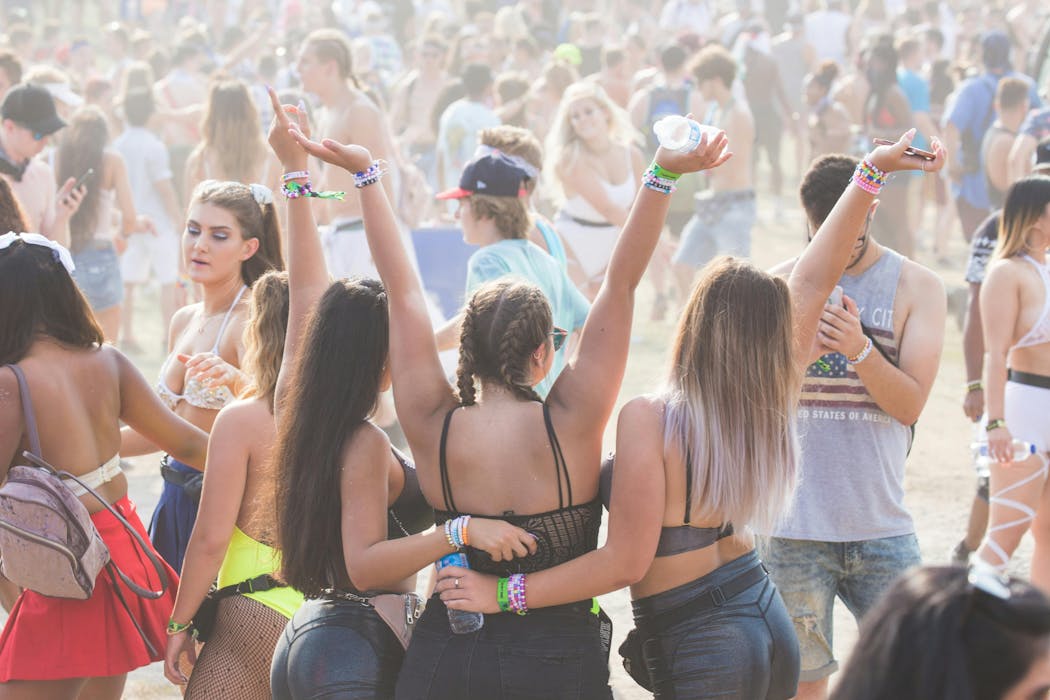
At the end of November, official schoolies celebrations will begin for the class of 2025. While the Gold Coast, Byron Bay, Lorne and Victor Harbour are still popular, young people are also choosing to travel internationally to celebrate the end of school.
Last year, an estimated 8,000 school leavers went to Bali. Fiji, Vanuatu and Thailand are also popular schoolies destinations.
My work focuses on keeping young people safe from harm at large events. Here’s what you should consider before booking an overseas schoolies trip.
Read more: First off, have a plan – 5 ways young people can stay safe at schoolies
Local laws are different
Laws can be very different overseas. In Indonesia, for example, the local drinking age is 21, and this applies to both nationals and foreigners.
Many drugs are prohibited and have severe penalties. What might be considered a minor offence in Australia can have serious legal consequences, including imprisonment in Indonesia.
Knowing and respecting local laws is crucial to ensure you stay safe while celebrating.
Young people can also be targeted for theft and harm, such as drink spiking, by locals, who may view schoolies as wealthy and inexperienced.
Drinking safely
Since schoolies began in Australia in the 1970s, the event has been designed for young people. This has involved efforts to keep the party environment safe as young people celebrate the end of their school years.
Australian schoolies venues are set up with the expectation schoolies will drink and get up to a bit of mischief. So free services have been developed to support school leavers to party, while reducing the risks of harm.
They include chill out zones, giving out lollies, free water and recharge stations.
Overseas, there may not be regulations to protect young people from the harmful consequence of drinking and drinks may not be safe. This includes the risk of methanol spiking, which can be lethal.
If you are drinking overseas, stick to licensed venues, and stick to sealed and labelled drinks. Be cautious about unusually cheap drinks.
Volunteers and police
If you go to schoolies in Australia, there are dedicated teams of volunteers at official events. These volunteers walk around the venue to ensure people are safe. They can help you find your friends, take you to a safe space or stay with you if you are alone.
There are also event personnel to help you get food or drink or recharge your phone and you can talk to them without consequences. If things go wrong, there is medical attention on standby and it is free and confidential. Police are also there to ensure you are safe.
Overseas, language barriers and unfamiliar environments can make it harder to access help and make safer choices. Some venues may have volunteer helpers, but overall, there are no dedicated medical or police teams to help you if you get into trouble.
Wherever you are partying, make a plan beforehand to stick with your friends and look out for each other. Avoid going anywhere alone, especially at night, and always organise a meet up spot in case you do get separated or your phone dies.
Access to consular and medical support
If something goes wrong overseas there may be limited consular support if you have broken local laws – even if you didn’t mean to. Health systems may not offer the same standard of care and medical evacuation can cost tens of thousands of dollars.
Even if you have travel insurance, it may not always include coverage for alcohol or drug-related incidents.
There will still be a huge parties in Australia
Going overseas is exciting, but schoolies is a recognised rite of passage in Australia – supported by a wide range of services designed to help young people celebrate safely.
Staying at home doesn’t mean missing out, it means celebrating in an environment created for young people, surrounded by friends, safety supports, and familiar systems.
This article is republished from The Conversation, a nonprofit, independent news organization bringing you facts and trustworthy analysis to help you make sense of our complex world. It was written by: Alison Hutton, Western Sydney University
Read more:
- Is your child’s school using generative AI? Here are 8 questions to ask
- Anxiety over school admissions isn’t limited to college – parents of young children are also feeling pressure, some more acutely than others
- Zohran Mamdani’s transformative child care plan builds on a history of NYC social innovations
Alison Hutton does not work for, consult, own shares in or receive funding from any company or organisation that would benefit from this article, and has disclosed no relevant affiliations beyond their academic appointment.


 The Conversation
The Conversation
 Local News in D.C.
Local News in D.C. Associated Press US News
Associated Press US News San Bernardino Sun
San Bernardino Sun Rockford Register Star
Rockford Register Star KSL Utah
KSL Utah CBS19 News Crime
CBS19 News Crime AmoMama
AmoMama OK Magazine
OK Magazine